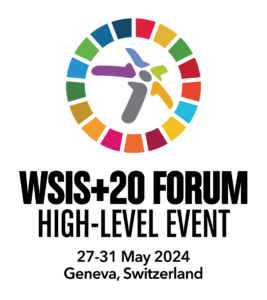 At the World Summit on the Information Society, May 30, 2024, GCOA hosted a panel discussion on the global health crisis that is AMR and how technology can, should and will have an impact through diagnostics, surveillance, and innovative developments. AMR will be responsible for 10 million deaths annually by 2050 – on track to be more deadly than cancer. AMR makes even the most common medical procedures, such as knee replacements, cancer treatments, root canals and caesarian sections, risky or even deadly, and those most vulnerable are in lesser developed countries. Click here for the Outcome Report. You can watch the panel here.
At the World Summit on the Information Society, May 30, 2024, GCOA hosted a panel discussion on the global health crisis that is AMR and how technology can, should and will have an impact through diagnostics, surveillance, and innovative developments. AMR will be responsible for 10 million deaths annually by 2050 – on track to be more deadly than cancer. AMR makes even the most common medical procedures, such as knee replacements, cancer treatments, root canals and caesarian sections, risky or even deadly, and those most vulnerable are in lesser developed countries. Click here for the Outcome Report. You can watch the panel here.
The panel included the participation of Ms. Latifat Okara, Principal and Americas Regional Lead, Economist Impact; John-Louis Tissier, Vice President Government and Public Affairs, bio-Mérieux: Dr. Raghu Sriram, Scientist, World Health Organization (WHO ) and Pol Vandenbroucke, Vice President Global Government Affairs, Shionogi, who served as the moderator. You can read more about the panel on our blog. For the WSIS official page, click here.
 Global Coalition On
Global Coalition On